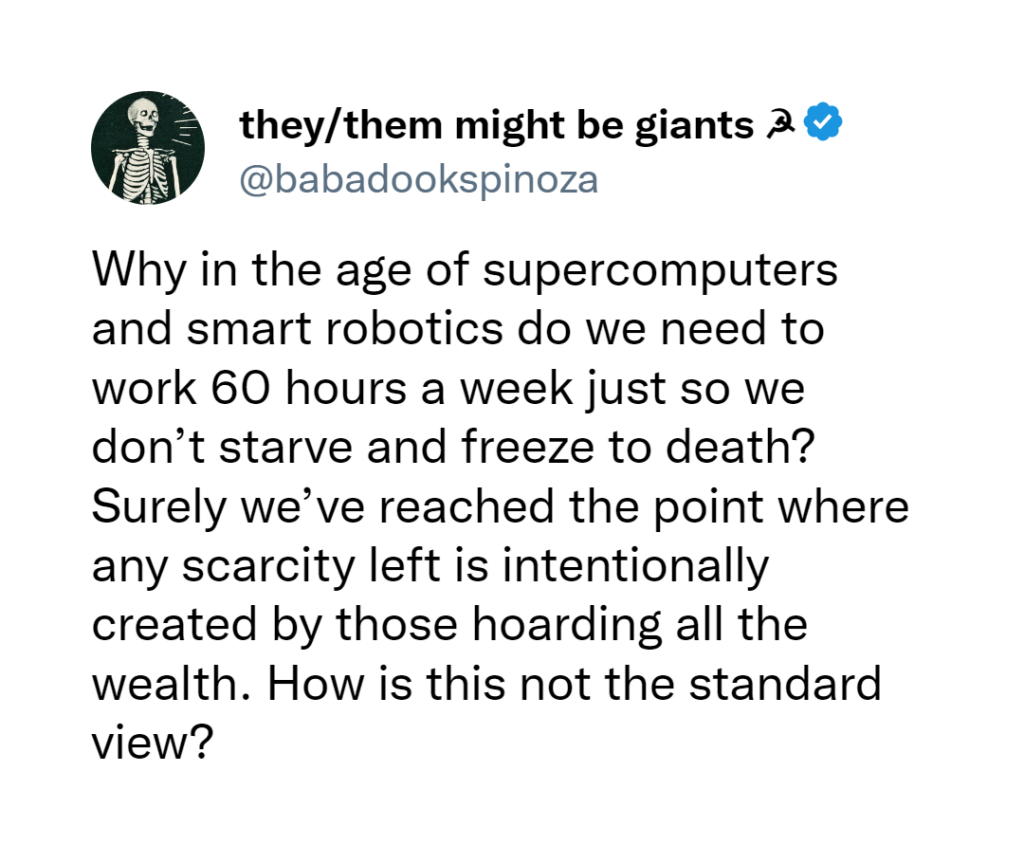Good Monday Morning
It’s April 24th. Friday is Arbor Day. Here’s a WDIV segment showing a Michigan celebration involving champion tree climbers–the arborists themselves.
Today’s Spotlight is 1,108 words–about 4 minutes to read

Spotlight On … Voice Cloning
The music world is livid and wary after the release of the track “Heart On My Sleeve,” credited to Drake and The Weeknd. The song became a viral sensation with millions of plays, proving problematic for the Canadian superstars who have collaborated in the past, but never sang on this track.
“Heart on My Sleeve” was created by voice cloning AI software and was released without the involvement of the artists or their music companies. This has sparked a debate about the potential of generative AI and what it could mean for the music industry. It has also raised questions about copyright laws and how they apply to AI-generated content.
Using sound alikes isn’t new in the music industry. Singer Ral Donner sounded like Elvis on multiple hits between 1959 and 1963. Before he became famous, Elton John recorded nearly 50 top hits between 1969 and 1970 for uncredited sound-alike releases. And even today, singers who leave a band are often replaced by others who mimic their voices.
But vocal cloning poses a different threat to the music industry. The judiciary often lags behind technological advances. Legal battles still rage over key provisions of the nearly thirty-year-old Communications Decency Act. Some legal experts today muse that the software creation could itself be considered a protected work of art.
Voice over artists are also increasingly concerned about synthesized versions of their voices that have cropped up online, usually on websites that promise to provide artificially generated scripts of famous voices.
Criminals are also using voice cloning. An Arizona mother received a call featuring the voice of her daughter crying and apologizing. A man told her that her daughter had been kidnapped while on a skiing trip and then demanded a ransom. In minutes, the woman verified the phone voice was fake and that her daughter was safe.
In Saskatchewan, a couple in their 70s was targeted by a call from their grandson’s voice claiming he was in jail and needed bail money. After withdrawing $3,000 CAD, they rushed to a second bank branch where they learned he was safe. Another couple lost $21,000 after a voice that sounded like their adult son claimed to be in jail after killing a U.S. diplomat in a car accident.
Voice cloning is cheap, easy, and ubiquitous. Critics also praise its quality. For now, be careful, ask smart questions that may not be public knowledge, and heed these red flags that the FBI identified.
3 More Stories to Know
1) Europe’s air traffic control organization has been under cyberattack by a known Russian hacking gang since April. 19. Officials says that air traffic there remains unaffected.
2) Instagram announced that commercial accounts can now include up 5 links in their profile. Account holders previously had to use a third-party service to include more than one link.
3) An era ended when Netflix announced that it will stop emailing DVDs to customers in September.
You may not know that Silver Beacon-owned website Movie Rewind was one of the first sites to publish the company’s schedule. EIC Sue Millinocket wrote the breakthrough piece, “The Blind Side Not Out On Netflix? I’ll Tell You Why” way back in March of 2010. Since then, Sue and her team of contributors publish genre-specific reviews of older films and television.
They also still publish a free weekly overview of Netflix release dates. Sign up here.
Waiting in the Wings
- Protecting yourself from location data
- What you can really do with those chatbots
- How algorithms are automatically denying medical claims
Put your email address in the form at this link and you’ll get a free copy of Spotlight each Monday morning to start your week in the know.
If you’re already a free subscriber, would you please forward this to a friend who could use a little Spotlight in their Monday mornings? It would really help us out.
Trends & Spends


Did That Really Happen? — Bud Light Billboards & Other Debunked Stuff
Here’s what happened with the Bud Light “boycott.”
- Anheuser-Busch sent out “influencer packages,” essentially free gifts for hundreds of people in different communities.
- One of the goodies was some Bud Light cans with the person’s name on it.
- One went to an online personality who happens to be transgendered.
From there, all the stories got crazy. Conservative musicians Kid Rock and John Rich both made videos complaining about a transgendered person’s inclusion. Both claimed to cut off Budweiser sales at their restaurants, which Fr. Nathan Monk later proved was untrue.
Others claimed that the company had lost “billions” although the stock price is actually flat this month and up this year. And still others claimed, especially on social media, that the entire marketing department had been fired, which was again, untrue.
Finally, the AP had to debunk claims that Budweiser had bought billboards mocking conservative activists and calling them crybabies.
Following Up — AI Cutting Academic Paper Mills
Academic paper writers who help students cheat say that the rise of generative AI like ChatGPT has cut into their earnings.
Protip — Disable ChatGPT on Windows 11
If you’re using Bing and Windows 11, you now have ChatGPT on your taskbar, but this simple diagram shows you how to remove it.
Screening Room — My Last Lullaby
Science Fiction World — NYPD Robot Dogs Are Back
We wrote about police robots fashioned to look like dogs two years ago. A public outcry ended the program before it really started, but with former police captain and current mayor Eric Adams leading the way, the NYPD is using robots again.
Coffee Break — Voice Clone Yourself
Here’s one of many free options you can try yourself to see what all the fuss is about.
Sign of the Times

